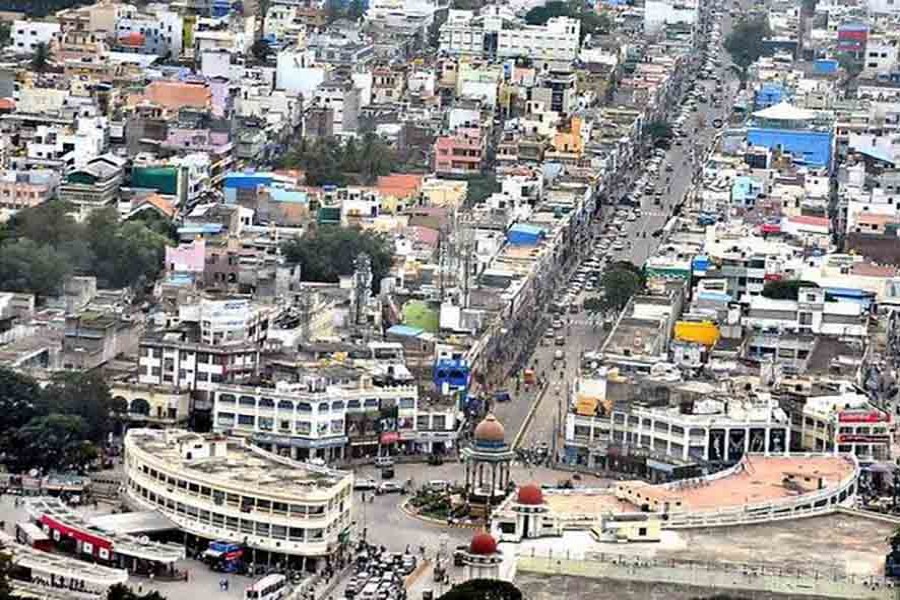Lately two important indices reflecting on living conditions in Dhaka, more precisely, the quality of life it offers, have made us sit up and take note of.
Although the megalopolis is no stranger to listing from the bottom on the livability index, the rankings have not been altogether downhill. These have intermittently moved up the scale, maybe a notch or two higher as some latest editions of global evaluations would bear out. The question is whether we have bettered our performance because others have worsened theirs pushing our ranking up. Or, we have genuinely deserved it at least to some degree. Actually, both may be true about Bangladesh.
Take for instance, the US Environment Protection Agency (USEPA), ranking Dhaka fourth in terms of air pollution, especially dust concentration; Kathmandu coming at the bottom of the list. Dhaka's index value is 195 compared with Kathmandu's 208.
The slabs range as follows: 0-50 is considered 'good'; 51-100 is 'moderate'; 100-150 'cautious'; 151-200 is reckoned as 'unhealthy'; 201-300 'very unhealthy'; and 301-500 is 'extremely unhealthy.'
So, Dhaka is on the borderline of abnormality i.e being just five shy of being tarred as 'very unhealthy.' Nothing to go gaga over it; for only in February this year, Dhaka's index read the worst at 339. According to index pattern, the pollution 'level varies from hour to hour and day to day.' Dust concentration increases during the dry season, and its inhalation can damage the citizens' health severely, particularly their respiratory tract. Children are the most vulnerable.
As the monsoons set in and get into a full swing the dusts and particulate suspended pollutants will be washed away cleansing the air substantially. But then it won't be an unmixed blessing because post-rain water-logging may be just as vulnerable to viral and bacterial infections.
An answer to dust concentration can be three-fold: First, we must repair the roads filling the craters firmly, not in a wishy-washy manner the road-keepers do to make bucks as from the cracks perpetually; secondly, we should, like in old times, have lorries sprinkle water on the streets at the driest and dustiest spells of the season; last but not least, it is imperative that we use technology for rain water harvesting to solve the dual problem of drinking water scarcity and that of sprinkling water over the dried, dusty streets.
In parallel to such an existential challenge , we are having to face the exorbitant costs of living. As if to remind us of that ordeal, The Economist of the United Kingdom, has dubbed Dhaka the most expensive city in South Asia. The cost of living in Bangladesh capital is higher than in India's New Delhi, Chennai and Bengaluru and Pakistan's Karachi. It is even dearer than the Turkish city Istanbul. The London-based Economic Intelligence research organization, while observing a 'fall in the living standards of Dhaka during the last 12 months' , maintains that it is still more expensive than big cities of South Asia. Dhaka has the 72nd place among 133 countries surveyed with New Delhi, Bengaluru and Chennai way ahead being 124th,126th and 129th respectively in their placings.
The evaluations were based on comparative analyses of prices of 160 types of commodities and services. The list includes food and water, clothes, house rent, household goods, cosmetics, transportation cost, school expenses, utility bills, recreation etc.
The sad part is we may have lost out on purchasing power parity (PPP).We must do everything in our power to restore that advantage within the parameters of an expanding economy.
What, however, should dawn on us as an overarching moral question is the diminishing livability of Dhaka city which is a complete mismatch with the higher bills of living the citizens are having to pay for, without commensurate improvement in the quality of life.
Self-charmed circles are a different matter; what of the average men and women, the building blocks of the country looking for costs of living within their means topped up by economic and social security.


